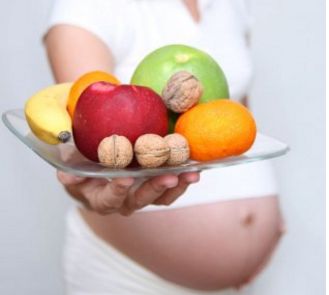There’s an important connection between a healthy holistic diet and incorporating the right essential vitamins and minerals into that diet in order to ensure the proper growth and development of your baby’s development during pregnancy.
Here’s 7 essential micronutrients to utilize in the diet during pregnancy:
1. Vitamin B9 (Folate)
One of the most essential micronutrients during pregnancy as its importance rely’s on both placental and fetal growth. 400-1000 mcg/ day is recommended.
Best sources: dark green leafy vegetables, beef liver, fortified cereals, turkey, giblets, okra and enriched rice/ pasta.
2. Vitamin C (Ascorbic Acid)
Filled with anti-oxidant/ anti-inflammatory properties and aids in the increase absorption of Iron, its an important component to strengthening the immune system. This flu fighting vitamin is also beneficial by protecting the veins and capillaries typically stressed during normal pregnancy weight gain. 1800-2000 mg/ day is recommended.
Best sources: citrus fruits, tomatoes, potatoes, strawberries, broccoli, mangoes, kiwi and peppers.
3. Vitamin D
This “sunshine” vitamin promotes the absorption of Calcium and Phosphate, while regulating bone mineralization of the mother. Anything > or around 600 IU/ day is recommended.
Best sources: the sun, cod liver oil, sardines, egg yolks and whole/ fortified milk alternatives.
4. Calcium
Most abundant in the body, which typically increases in absorption during pregnancy tends to aid in the bone growth and development for your baby. Best taken with magnesium to protect you and your child from lead toxicity. 1200 mg/ day is recommended.
Best Sources: Sesame seeds, soybeans, tofu, salmon, beef liver, dried beans, dark green leafy vegetables, walnuts, sardines and dairy products.
5. Iron
Needed in most women and a vital requirement during pregnancy. Iron is beneficial for the increase of oxygen into the cells and blood flow throughout the mothers circulatory system to the placenta. ~30 mg/ day or more is recommended.
Best Sources: organic meats, dried peaches, oysters, lentils, egg yolks, beans, oatmeal, enriched cereals and cooking with cast iron pans.
6. Magnesium
This electrolyte mineral regulates fluid balance, pH, and the increase in absorption of calcium. This mineral provides the energy and muscle relaxation/ contraction while going into labor. 350 mg/ day is recommended and/ or 1:1 or 1:2 doses with calcium.
Best Sources: soybeans, raw nuts, cocoa, spinach, chard beans, cumin, tomato, sea vegetables and cloves.
7. Zinc
Best known for its ability to increase fertility (cell-splitting process), and most essential helping the absorption of B9. 10-20 mg/ day is recommended (too high in consumption can inhibit the absorption of B9).
Best Sources: oysters, pumpkin seed, lamb chops, brewer’s yeast, beef liver, eggs, dry beans, mushrooms, spinach, asparagus, scallops, red meats, peas, yoghurt and oats.


